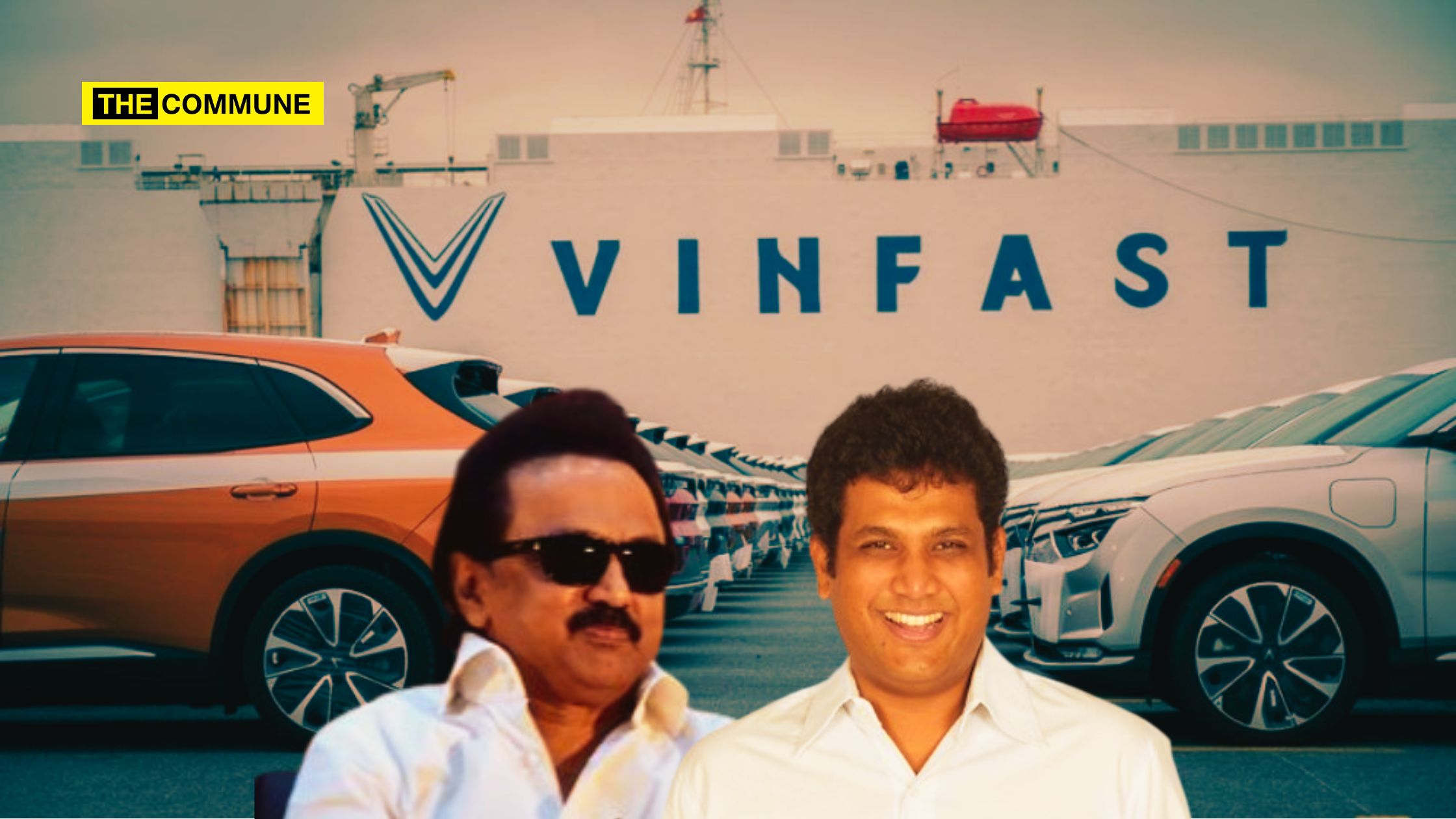
VinFast, Vietnam’s leading electric vehicle (EV) manufacturer, signed a deal during the Tamil Nadu Global Investors Meet 2024 with TN Chief Minister MK Stalin. Just 50 days after the MoU signing, Stalin laid the foundation stone for VinFast Auto Ltd’s EV manufacturing facility at Thoothukudi with an investment of ₹16,000 crore. This deal, along with others, contributed to the record investments of ₹6.64 lakh crore attracted during the Global Investors Meet.
The hopes were high for VinFast as it celebrated the groundbreaking of a new factory in North Carolina, USA coupled with the plans for a massive investment in Tamil Nadu. However, recent developments have cast doubts on the company’s ability to deliver on its promises and overcome the myriad challenges it faces in its quest for global dominance in the EV market.
North Carolina Factory: Delays And Minimal Progress
VinFast’s much-publicized groundbreaking ceremony in North Carolina promised a $4 billion investment and 7,500 jobs, supported by $1.2 billion in government incentives. Yet, progress at the site has been sluggish, with only partial foundation work completed and no workers on-site during recent visits. The company now aims to complete the factory by the end of 2025, a significant delay from the original timeline. In contrast, Hyundai’s nearby EV plant in Georgia is progressing rapidly, highlighting VinFast’s struggles in execution.
Sales And Production Woes
VinFast’s electric vehicles are grappling with low demand both domestically and internationally. Despite boasting an annual capacity of 300,000 cars at its main factory in Hai Phong, Vietnam, the company delivered less than 35,000 vehicles last year, falling short of targets. Moreover, the North Carolina plant’s delayed construction adds to VinFast’s production challenges, with Hyundai’s EV plant showcasing a more efficient pace.
Overambitious Expansions And Financial Setbacks
VinFast’s ambitious plans for overseas investments, including a $2 billion plant in India and a $2.1 billion expansion in Indonesia, raise concerns amid its struggles to meet targets and generate sales. Financially, the company faces setbacks, with its stock price plummeting after an initial high-profile NASDAQ listing via SPAC. VinFast’s overreliance on sales to companies owned by its CEO or parent company further underscores its financial fragility.
Regulatory And Market Challenges
VinFast’s reported sales are heavily dependent on transactions with companies owned by its CEO or parent company, raising questions about the sustainability of its business model. In addition to internal woes, VinFast contends with regulatory hurdles and fierce competition in the global EV market. Sluggish demand in the US and aggressive exports from China pose significant obstacles, while established brands like Tesla dominate mindshare. VinFast’s lack of brand recognition outside Vietnam exacerbates these challenges, making it difficult to attract customers internationally.
Public Relations Issues And Trust Deficit
VinFast’s reputation takes a hit from critical reviews of its vehicles and allegations of suppressing negative media coverage. Disastrous reviews from the international automotive press and allegations of offering incentives to journalists tarnish the company’s image. Moreover, concerns about transparency arise amid reports of negative posts disappearing from Vietnamese media platforms and arrests of critics.
Capital And Government Challenges
While VinFast’s parent company, Vingroup, boasts significant financial resources, its ability to raise capital faces scrutiny amid tightening government regulations and a broader crackdown on corporate financial activities in Vietnam. The government’s reluctance to bail out private companies adds to VinFast’s financial uncertainties, potentially hindering its expansion plans.
Despite grandiose announcements and ambitious plans, VinFast finds itself at a crossroads, grappling with myriad challenges ranging from production woes and financial setbacks to regulatory hurdles and public relations issues. As it navigates these obstacles, the company’s ability to pivot and adapt will determine its fate in the fiercely competitive global EV market.
Did The DMK Hoodwink The Public?
Vinfast was poised to start its operations in Thoothukudi, where in 2018 a major copper manufacturer – Sterlite Industries, was closed after a troubled history. The DMK, Dravidianists, and NGOs with ties to the Church were elemental in instigating and sustaining the protests which resulted in violence. Since Sterlite’s closure, the people and small industries of the region that were dependent on Sterlite have been experiencing economic strain. To compensate for the economic downfall of the region, the DMK government seems to be bringing in some random company to revive the economic fortunes of the region. The DMK government claimed that Vinfast has invested ₹16,000 crore, but in reality, the company has earmarked only ₹4,000 crore for the initial five years of investment.
⚠️⚠️In January this year, while I was happy for #Tamilnadu for getting a deal signed with #VinFast having a huge investment plan in the EV sector, I was also skeptical about their manufacturing and quality capabilities and raised concerns the company was already facing.
‼️Now,… pic.twitter.com/KvAOE5t1Bq
— Saikiran Kannan | 赛基兰坎南 (@saikirankannan) April 23, 2024
(with inputs from HunterBrook)
Subscribe to our channels on Telegram, WhatsApp, and Instagram and get the best stories of the day delivered to you personally.




